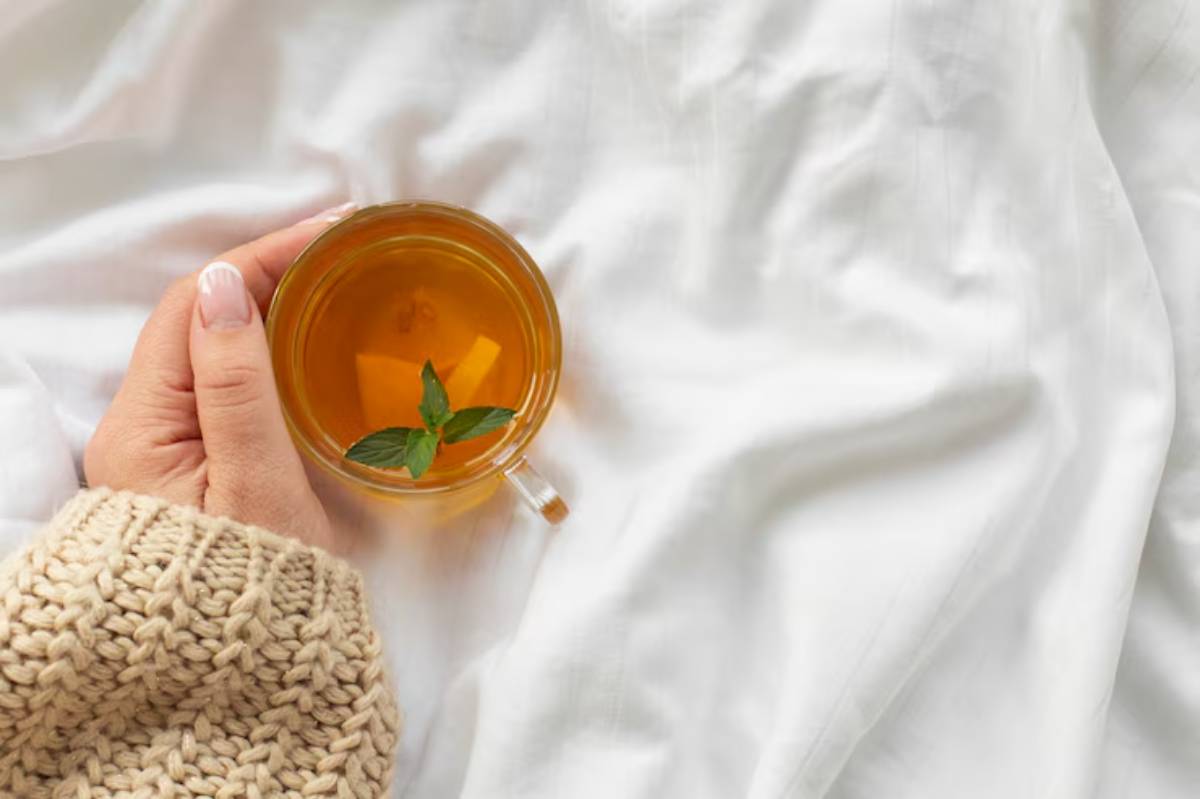The Health Blog

The Science Behind Lemon Balm for Restful Nights
If you find yourself tossing and turning at night, you’re not alone. Millions of people struggle to fall asleep or stay asleep. While many turn to over-the-counter medications, there’s growing interest in safe, gentle alternatives. One plant, in particular, has gained attention for promoting relaxation and improving sleep: lemon balm.
Lemon balm (Melissa officinalis) has been used for centuries as a calming herbal remedy for insomnia and stress relief. But what does the science say? Can it really help you get a better night’s rest?
This guide explores how lemon balm works, the research behind its use as one of the best sleep quality herbs, and how to safely incorporate it into your evening routine to enhance lemon balm sleep benefits.
What Is Lemon Balm?
Lemon balm is a fragrant herb in the mint family. It grows widely in Europe and around the world and is known for its bright green leaves and subtle lemon scent.
Traditionally, lemon balm has been used to:
- Ease anxiety and stress
- Support digestion
- Relieve headaches
- Act as a natural sleep aid
Today, lemon balm is most popular as a gentle and effective option for people looking for sleep quality herbs that don’t come with harsh side effects.
Lemon balm isn’t just relaxing — it’s backed by both tradition and emerging science.
How Lemon Balm May Improve Sleep

Lemon balm works in multiple ways to support restful nights.
1. Calms the Nervous System
Studies suggest that lemon balm may interact with gamma-aminobutyric acid (GABA), a calming neurotransmitter in the brain. Higher GABA levels help reduce anxiety and prepare the body for sleep.
2. Reduces Anxiety and Restlessness
Many people struggle to sleep because of racing thoughts or mild anxiety. Research shows that lemon balm may reduce feelings of nervousness, helping you wind down at bedtime.
3. Eases Digestive Discomfort
Stomach discomfort and bloating can interfere with sleep. Lemon balm has mild antispasmodic properties that help soothe digestive issues, promoting better rest.
4. Enhances Sleep Quality
Some small studies suggest that lemon balm can improve both the duration and quality of sleep, making it a useful herbal remedy for insomnia.
Scientific Research on Lemon Balm for Sleep
While more large-scale studies are needed, early research offers encouraging results.
A 2004 Study
Participants with mild-to-moderate anxiety and sleep disturbances were given lemon balm extract. After 15 days:
- 95% of participants reported reduced stress
- 70% experienced improved lemon balm sleep benefits
- Few reported any side effects
A 2011 Clinical Trial
Children under stress who took a lemon balm blend showed improvements in sleep quality, anxiety levels, and hyperactivity symptoms.
A 2020 Review
A review of traditional sleep quality herbs identified lemon balm as a safe and well-tolerated option for promoting relaxation and mild sleep support.
While results vary, lemon balm remains one of the most promising gentle herbs for supporting restful sleep.
Related Read: Learn how essential oils work for sleep in our Best Essential Oils for Sleep and Relaxation.
How to Use Lemon Balm for Sleep

There are many ways to incorporate lemon balm into your bedtime routine. Choose the option that works best for you.
Lemon Balm Tea
- One of the most common and soothing forms
- Steep 1–2 teaspoons of dried lemon balm in hot water for 5–10 minutes
- Sip 30 minutes before bed for calming effects
Lemon Balm Capsules
- Convenient if you don’t like herbal teas
- Provides a standardised dose of active compounds
- Follow the product’s recommended dosage
Tinctures and Extracts
- Liquid forms can be added to water or juice
- May be absorbed more quickly by the body
Aromatherapy or Essential Oils
- While not typically ingested, the scent of lemon balm essential oil may promote calm feelings when used in a diffuser before bed
Always choose high-quality products from trusted brands to ensure purity and effectiveness.
Is Lemon Balm Safe?

Lemon balm is considered safe for most people when used as directed. However, a few guidelines apply:
Possible Side Effects
Some people may experience:
- Mild dizziness
- Nausea
- Increased drowsiness (during the day if taken too early)
Who Should Avoid It?
- Pregnant or breastfeeding women (consult your doctor first)
- People taking thyroid medication (due to potential interactions)
- Those with very low blood pressure (consult your healthcare provider)
General Safety Tips
- Do not exceed the recommended dosage
- Try lemon balm at home first to understand how your body responds
- Combine it with other healthy sleep habits for best results
Lemon Balm Compared to Other Herbal Sleep Aids
How does lemon balm stack up against other sleep quality herbs?
| Herbal Remedy | Key Benefit | Best For |
| Lemon balm | Calms the mind and stomach | Mild insomnia, stress, restlessness |
| Valerian root | Stronger sedative effects | Chronic or severe insomnia |
| Chamomile | Mild relaxation | Occasional sleep troubles |
| Passionflower | Reduces anxiety | Anxiety-related insomnia |
Lemon balm is ideal if you want a gentle, non-sedating option to help you relax before bed.
Tips for Getting the Most from Lemon Balm
To maximise your lemon balm sleep experience:
- Keep a regular bedtime routine
- Limit caffeine after 2 p.m.
- Keep your bedroom cool, dark, and quiet
- Use lemon balm consistently for a few nights before judging its full effects
- Combine with meditation or breathing exercises for deeper relaxation
Lemon balm works best as part of an overall wind-down routine, not a quick fix.
Can You Take Lemon Balm with Other Herbs?
Yes, lemon balm is often blended with:
- Passionflower
- Valerian root
- Chamomile
- Lavender
These combinations can offer a fuller relaxation experience. However, always start with small doses to see how you react.
A Natural Path to Restful Nights
Lemon balm offers a safe, time-tested way to support restful sleep. As a herbal remedy for insomnia, it helps calm the mind, relax the body, and promote a sense of peace as you get ready for bed.
If you’re looking for a natural, gentle way to improve your sleep, lemon balm sleep support may be exactly what you need.
Related Read: Explore our full comparison in Chamomile vs. Valerian: Which is Better for Sleep?









